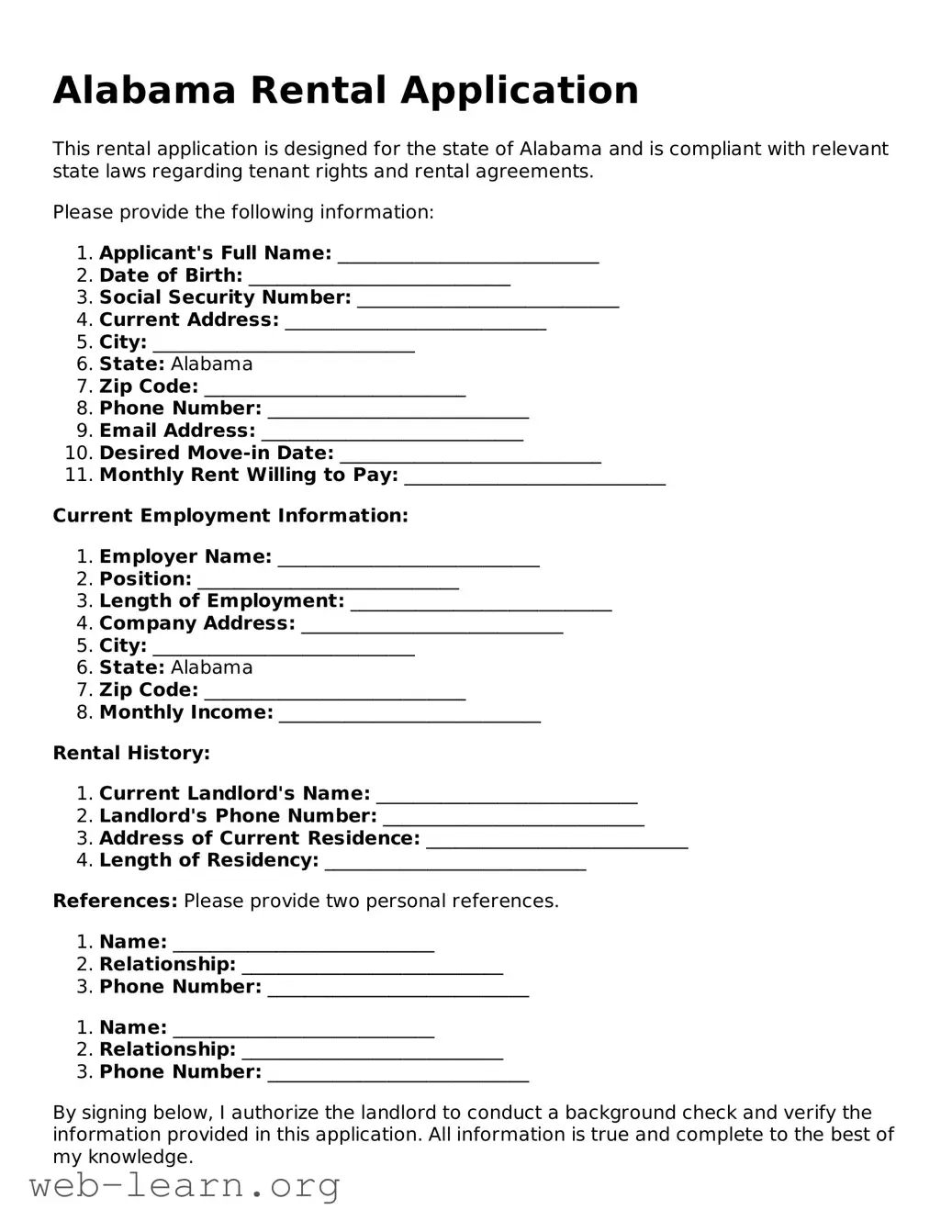Alabama Rental Application
This rental application is designed for the state of Alabama and is compliant with relevant state laws regarding tenant rights and rental agreements.
Please provide the following information:
- Applicant's Full Name: ____________________________
- Date of Birth: ____________________________
- Social Security Number: ____________________________
- Current Address: ____________________________
- City: ____________________________
- State: Alabama
- Zip Code: ____________________________
- Phone Number: ____________________________
- Email Address: ____________________________
- Desired Move-in Date: ____________________________
- Monthly Rent Willing to Pay: ____________________________
Current Employment Information:
- Employer Name: ____________________________
- Position: ____________________________
- Length of Employment: ____________________________
- Company Address: ____________________________
- City: ____________________________
- State: Alabama
- Zip Code: ____________________________
- Monthly Income: ____________________________
Rental History:
- Current Landlord's Name: ____________________________
- Landlord's Phone Number: ____________________________
- Address of Current Residence: ____________________________
- Length of Residency: ____________________________
References: Please provide two personal references.
- Name: ____________________________
- Relationship: ____________________________
- Phone Number: ____________________________
- Name: ____________________________
- Relationship: ____________________________
- Phone Number: ____________________________
By signing below, I authorize the landlord to conduct a background check and verify the information provided in this application. All information is true and complete to the best of my knowledge.
Applicant's Signature: ____________________________
Date: ____________________________
